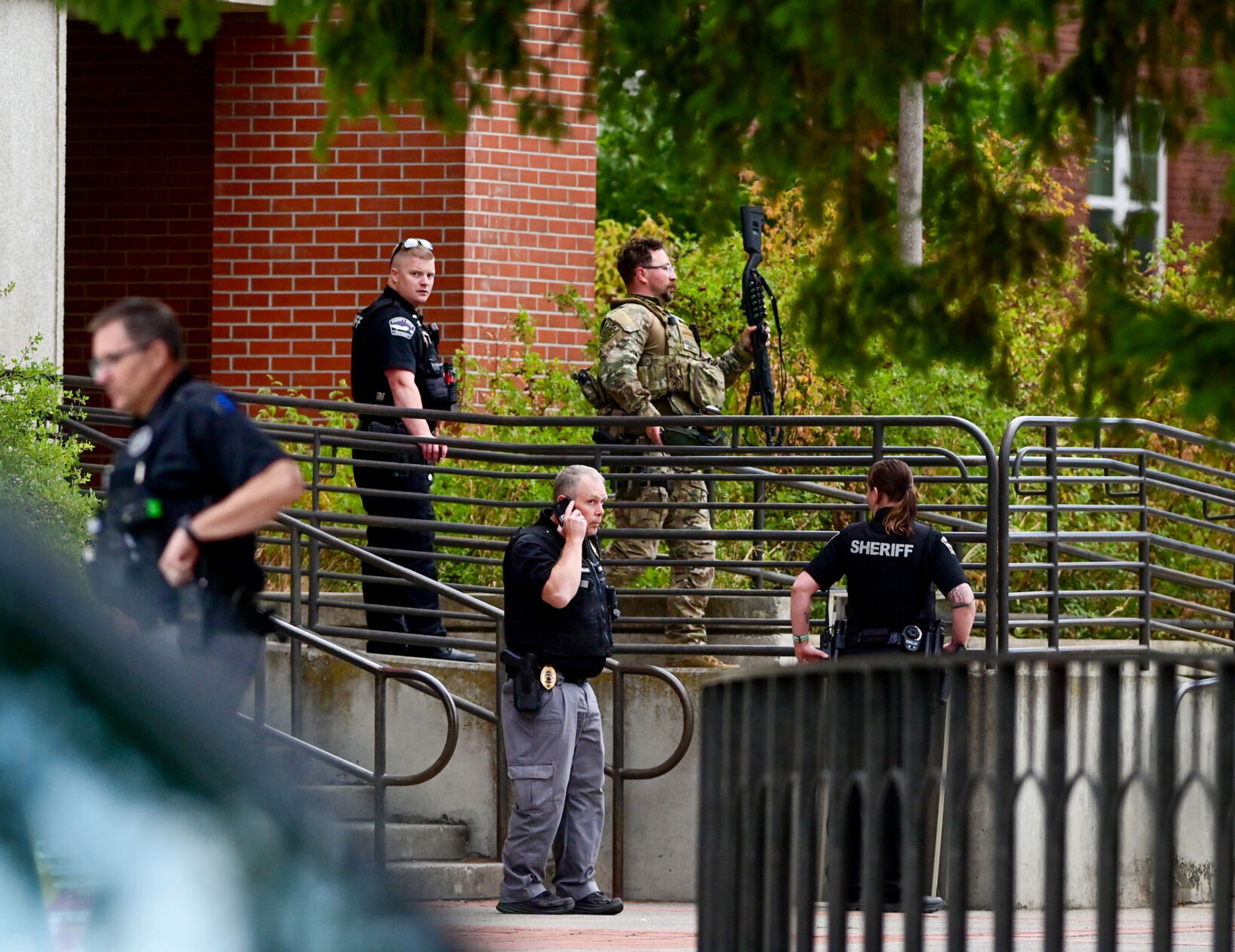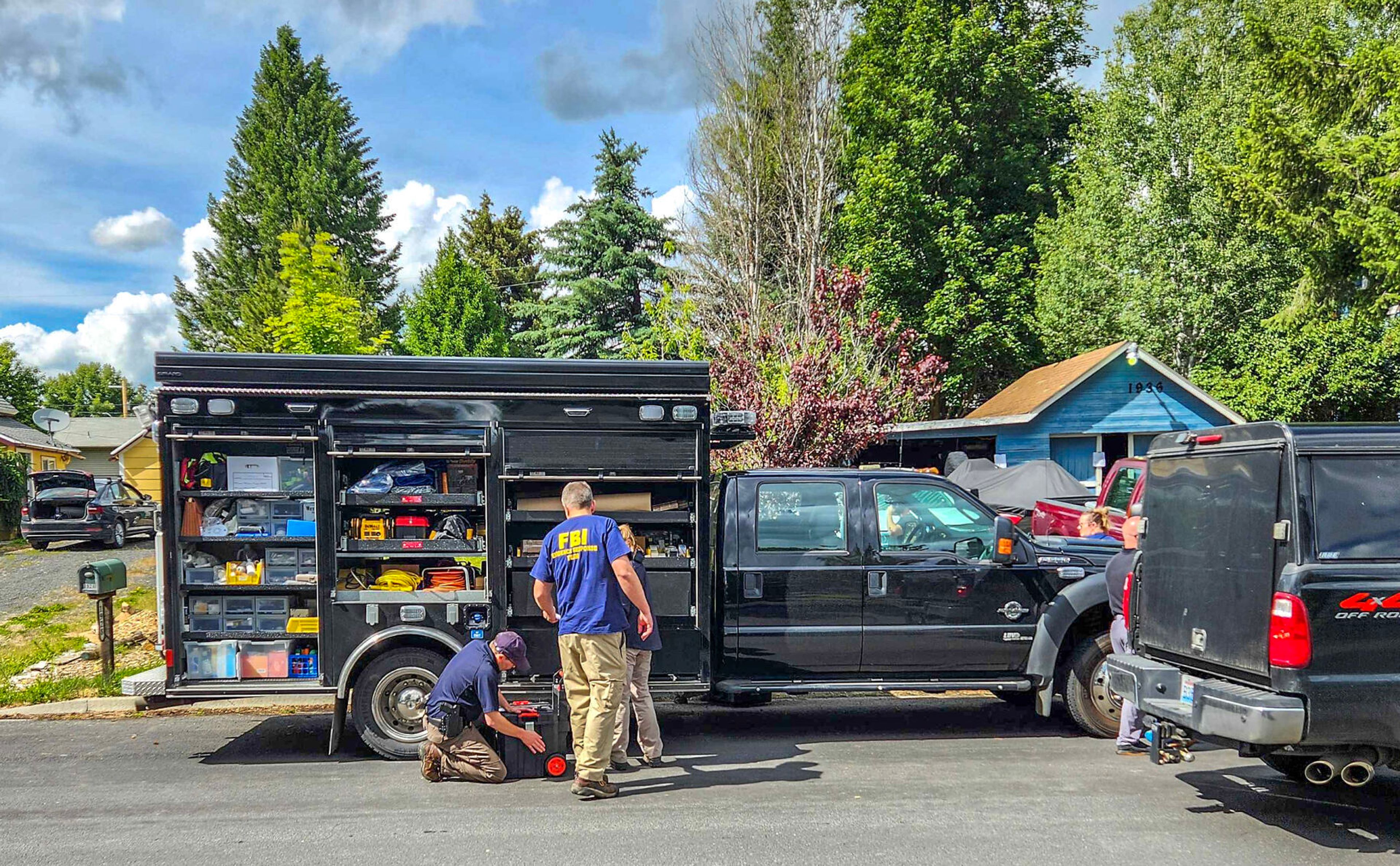Homelessness often hidden in Whitman, Latah counties
Couch surfing, living out of vehicles most accurately depicts local situation
While homelessness is a major problem in large West Coast cities, the issue seems to be far less prevalent in Pullman and Moscow.
Local law enforcement officials will even tell you it's hidden.
"It is hidden, especially here on the Palouse," Pullman Police Department Cmdr. Chris Tennant said.
According to the Washington State Department of Commerce, in Whitman County, there are an estimated 29 sheltered and zero unsheltered homeless people.
This year's total decreased 29.3 percent from the 2017 count that reported 40 sheltered and one unsheltered person in Whitman County.
Homelessness was found to be a bit more prevalent in Latah County.
According to the Idaho Housing and Finance Association, in 2018 there were some 148 homeless people in Idaho's Region 2.
The IHFA counts by region - not by county - to attain its numbers.
Region 2 includes Latah, Nez Perce, Clearwater, Lewis and Idaho counties. Of the 148 people, 91 lacked shelter. The count is up 37.8 percent from the 92 homeless people accounted for in 2017.
According to the IHFA, an unsheltered homeless person resides in a place not meant for human habitation - in a vehicle, on the streets, or in tents.
Sojourners' Alliance Executive Director Steve Bonnar said while Lewiston has a larger homeless community, Moscow has its fair share of homelessness.
He said Sojourners' Alliance provides 12 beds for men and four for women. There are also three family units. Currently, there are three open beds, but when vacancies arise, they are typically filled immediately, Bonnar said.
The nonprofit organization does not have a waiting list for beds, per se. Normally, if someone is seeking housing and Sojourners' Alliance does not have openings, Bonnar said staff will ask them to call back on a weekly basis or they will refer the individual to Spokane for housing options. If that person calls on a weekly basis, he or she will have first priority, he said.
Bonnar said his organization recently paid for a motel room for people sleeping in their car for three weeks since it could not provide beds on site.
A new homelessness response system launched in January across Idaho prioritizes those with the greatest needs rather than the first-come, first-serve approach homeless service providers used in the past. Those in need of housing can now call an access point in their region and undergo a screening process - over the phone or in person - to determine the level of need.
In Idaho's Region 2, the access point is Sojourners' Alliance in Moscow.
Bonnar said Sojourners' Alliance performs about 16 to 20 screenings per week, which amounts to about 1,000 screenings per year.
"If anybody does not have a place to live - whether it's one or 100 - to me, that's a problem," Bonnar said.
Local law enforcement say they rarely see or interact with the homeless.
Tennant said there are few places in Pullman where homeless people set up camps or tents. He said he noticed tents set up along waterways and banks in the city for the first time two years ago, adding individuals stayed in the tents for about one month at a time.
"But generally speaking, they go away during the colder months and they find other avenues," he said.
Tennant said in his experience, there has never been more than two people at a time at those sites.
Moscow Police Department Capt. Roger Lanier said hooking homeless people up with family or local services is the primary goal when officers contact a homeless person.
He said family members are usually pretty good at helping out once they learn the problem.
"Sometimes they don't have family and sometimes they don't want help," Lanier said.
Educating people on where they can sleep or camp is also a part of the conversation.
Tennant said Pullman does not have ordinances that prohibit loitering or sleeping on public property.
Private property is a different story. If the owner of the property asks someone to leave and the individual refuses, that person would be trespassing, he said.
Some cities have ordinances stating people cannot sit on sidewalks or camp in certain areas, but Tennant said Pullman has never really experienced those issues, so no laws are in place to address those instances.
"It's especially cumbersome in the winter time because it's super cold outside," Lanier said.
He said officers typically only make contact with homeless individuals during welfare checks or reports of suspicious people. The MPD receives more of those calls in the summer, when people can be seen camping on a hillside or in an alley, Lanier said.
During the winter, homeless people tend to be in a vehicle or trying to get inside a home.
"There's just as many homeless in the winter as there are in the summer," Lanier said. "They're just more visible in the summer."
Similar to Pullman, Lanier said he does not really see established small camps or tents in Moscow, but officers will find people here and there.
Latah County Sheriff Richie Skiles and Whitman County Sheriff Brett Myers say there is not a homeless crisis in their respective counties.
Skiles said he does not see tents or encampments, but once in a while a homeless person will pass through. He said he has only dealt with a couple homeless people in the county since he became sheriff two years ago.
Myers said couch surfing is more prevalent than people actually sleeping outside in the cold, which is uncommon. If he or his deputies encounter someone sleeping in a car or in the wilderness, they will try to work with charities or religious organizations to find a place for them to stay for the night.
Garrett Cabeza can be reached at (208) 883-4631, or by email to gcabeza@dnews.com.







